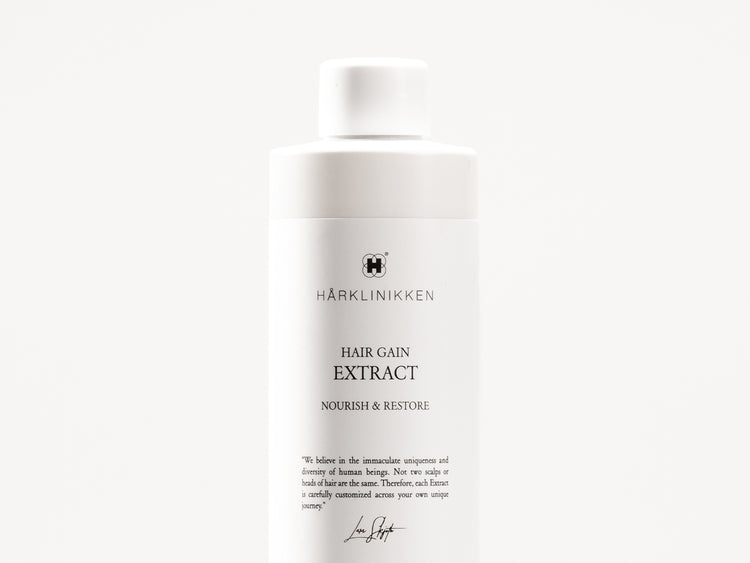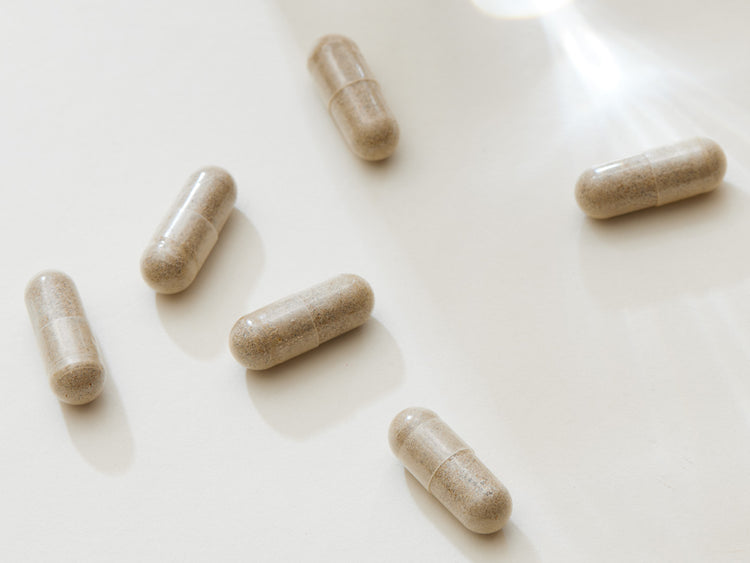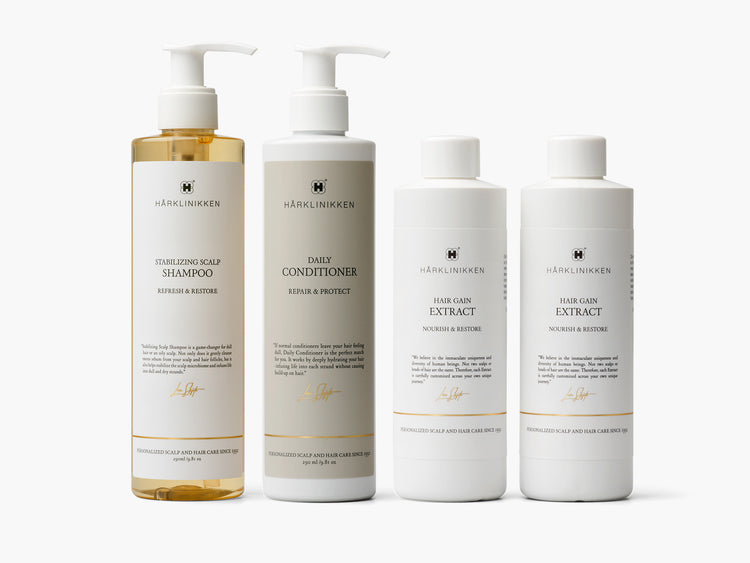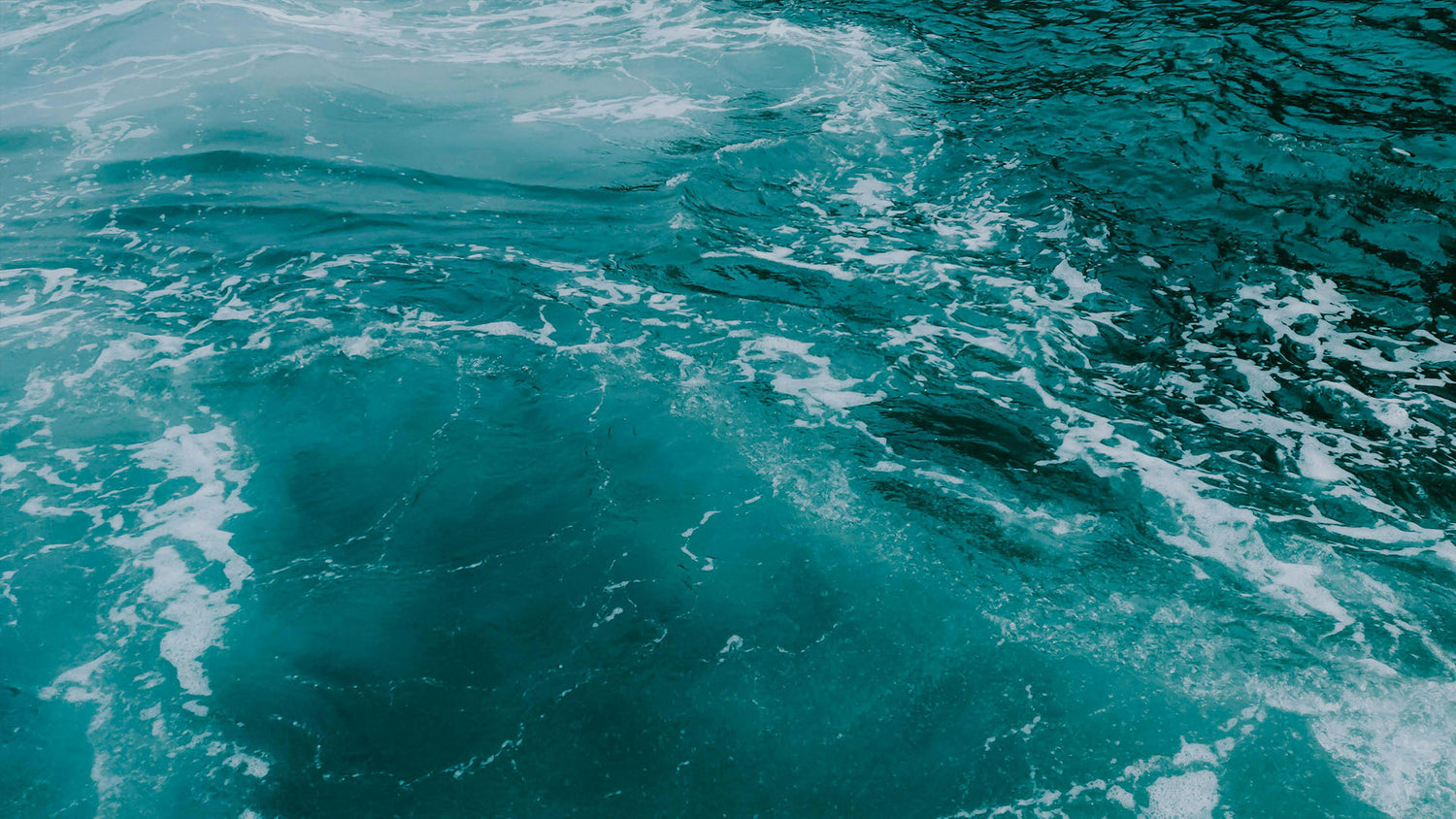Beachy waves are a coveted look year-round– it’s the reason why sea salt sprays exist. Many love the way seawater gives their hair texture and bounce; plus, it’s “natural.” However, it’s important to understand how seawater affects your hair, especially with long-term exposure. Knowing all the risks can help you make informed decisions about hair care during your ocean activities.
While seawater can give hair that desirable tousled texture, overexposure can do damage to your scalp and strands. But that doesn't mean you should skip your surf sessions or ocean swims. Instead, we want to educate you on how to protect your scalp and strands while still making the most of your time at the beach.
Seawater Composition
Seawater is about 96.5% water, with the rest being composed of around 2.5% salts. This can vary a lot though: some seas like the Baltic Sea have very low salt concentration because of inflow from large rivers, along with a few organic materials and pollutants.
Ocean water contains various minerals including sodium chloride (table salt), magnesium, calcium, and potassium. These minerals can impact your hair's protein structure in a negative way.
The salt concentration in seawater is significantly higher than what your hair is naturally designed to handle. This high salt content in seawater creates an osmotic imbalance that draws moisture from your hair, in the same way that salt is used to preserve food by removing water. Of course, these effects depend largely on exposure time, hair type, and the care you provide before and after ocean activities.
Hair is primarily composed of a protein called keratin, which forms the structure of each strand.
Exposure in small doses with proper protection and aftercare can be manageable for the hair, but frequent, unprotected exposure will likely result in cumulative damage over time.
Saltwater and Hair pH
It's also essential to consider the pH of your hair, scalp, and saltwater.
Both your hair and scalp are naturally slightly acidic. Your hair's optimal pH is around 4.5-5.5, while your scalp, like the skin on the rest of your body, sits at about 5.5. When this delicate pH balance is disrupted, the hair cuticle begins to dry out and crack, impacting the strength of individual strands and compromising overall scalp health and hair follicle function.
The pH level of seawater (around 8.1) is much more alkaline than your hair and scalp's natural pH, which can cause the hair cuticles to lift and become more vulnerable to damage. This alkaline environment is another factor that makes saltwater potentially damaging to hair and scalp health.
Can Saltwater Benefit Hair?
Many people believe that the salts and minerals in seawater do wonders by exfoliating the scalp and giving hair texture and volume. However, these beliefs are not rooted in science.
Myths About the Benefits of Seawater
Texture Enhancement
Some individuals find that saltwater creates appealing texture and volume in their hair. The salt can temporarily plump hair strands, creating a fuller appearance that many associate with the beach hair look. However, this effect is more harmful than beneficial. The minerals in seawater rough up the hair cuticle, making it more dry and brittle.
Scalp Exfoliation
Many believe that the minerals in seawater can provide gentle exfoliation for the scalp, potentially helping to remove dead skin cells and product buildup. However, with how saltwater exposure works, it may have the opposite effect: it can cause excess buildup on the scalp and hair.
Natural Cleansing
Some people report that ocean water helps cleanse their hair of excess oils. While this might seem like saltwater is good for hair, the cleansing effect is often too harsh and strips away beneficial natural oils.
Salt crystals dry out your scalp and strands, while also roughing up the hair's cuticles. There are much better ways to cleanse the scalp of buildup and create beachy waves without risking the damage that comes from prolonged saltwater exposure. With Hårklinikken’s line of paraben-free cleansers, you can deeply cleanse your scalp and protect your hair lengths from drying out.
Major Risks of Saltwater Exposure
Dehydration
The salt in seawater can strip natural oils from your scalp and hair, leading to dryness and dehydration. The osmotic effect of salt draws moisture out of your hair strands, leaving them brittle and prone to damage. This dehydration can lead to an irritated scalp and dull, brittle hair strands that are more prone to breakage and split ends.
Protein Damage
The high salt concentration in ocean water can disrupt the protein bonds in your hair, weakening the overall structure. This is particularly problematic for those with chemically treated or already damaged hair.
Color Fading
Salt crystals create friction on the hair cuticle, allowing more water and product to enter the hair but also escape. This makes it harder for hair to retain pigments, so people with dyed strands may find that their color fades faster.
This is especially true for vibrant colors and highlights, making saltwater particularly bad for hair that has been professionally colored. Residue of salt on the surface of hair can also alter its appearance by making the hair look matte.
Buildup
If not thoroughly cleansed away, salt residue can accumulate on the scalp together with buildup from dead skin cells, sebum, and product residue. This buildup is another reason why seawater can be bad for hair health. Not only can this lead to irritation, but it can also block hair follicles and hinder healthy hair growth.
How To Protect Your Scalp and Hair from Seawater Damage
Just as you would protect your hair from in chlorinated water, it's important to treat your hair before and after swimming or surfing in the sea to prevent damage. The key to enjoying ocean activities while maintaining healthy hair is implementing a comprehensive protection strategy.
Before Saltwater Exposure
1. Soak Your Hair
Because your hair can only absorb a certain amount of water, saturating it in fresh water from a tap or shower limits the amount of saltwater it will soak up in the sea. This is one of the most effective ways to prevent seawater from being bad for hair. Be sure to drench your hair in the beach shower, if there is one, or bring bottled water to thoroughly wet your hair before entering the ocean.
2. Create a Protective Barrier
Apply a leave-in conditioner to create a barrier between your hair and the saltwater. This physical barrier helps prevent salt from penetrating deeply into your hair shaft.
3. Moisturize Your Strands with a Hair Mask
Once you've saturated your hair with water, hydrate your strands with our Hair Mask, allowing the formula to work for at least five minutes before getting in the water. A leave-in moisturizing product can help counteract the drying effects of the salt in seawater and helps ensure that saltwater won't be as bad for hair as it could be without protection.
After Saltwater Exposure
1. Immediate Rinse
As soon as you exit the ocean, rinse your hair with fresh water to remove as much salt as possible before it has time to crystallize and cause damage.
2. Cleanse Scalp and Hair
Thoroughly cleansing after being immersed in seawater is essential, as the residue left over can cause buildup and dehydrate the scalp and hair. As soon as possible after getting out of the water, thoroughly rinse your hair with lukewarm water. Once you're home, cleanse your scalp and hair with our Balancing Shampoo or Stabilizing Scalp Shampoo, depending on your scalp and hair needs. If you want a deeper cleanse, we recommend the Stabilizing Shampoo, but if you want to achieve more balanced, gentle cleansing, we recommend the Balancing Shampoo. For a boost of nourishment and hydration, we recommend our Fortifying Shampoo as an add-on cleanser.
3. Deep Conditioning Treatment
After saltwater exposure, your hair needs intensive moisture replenishment. Use a deep conditioning mask or intensive treatment to restore hydration and repair any damage.
4. Hydrate Your Strands
We recommend using conditioner every time you wash your hair, especially after swimming in the ocean. Combat dehydration with a conditioner while in the shower, and then apply a leave-in treatment to damp hair as a reparative leave-in hydrator. The right conditioners will help lock in moisture, which will boost elasticity, softness and strength. Make sure you search for premium quality, silicone-free conditioners as most products typically merely coat the hairs and do not hydrate the strands.
FAQs About Seawater and Hair Health
Can Seawater Cause Hair Loss?
While seawater itself doesn't directly cause hair loss, inadequate cleansing and hydrating can lead to a buildup of salt and pollutants on the scalp. This buildup (also made up of dead skin cells, natural oils, product and dirt) can clog hair follicles and irritate the scalp, leading to hair shedding. This is one of the long-term ways that saltwater can be bad for hair health if proper care isn't maintained.
Scalp health can also be compromised by styling products and hair care products that contain SLS, parabens, and silicones. People who already have compromised scalp health, which is not uncommon, can experience contact reactions on their scalp after being in seawater for even a short period of time.
How Does Seawater Affect Different Hair Types?
Depending on your hair type, saltwater may affect your strands differently. But all hair types benefit from protection before and after swimming in the sea.
Straight Hair
Straight hair tends to be more resilient to the effects of seawater due to its smooth cuticle structure. The natural oils can travel down the hair shaft more easily, providing some protection. However, salt and pollutants in seawater can still dehydrate the strands after prolonged exposure.
Wavy Hair
People with wavy hair may find that their curls are more defined initially, leading some to believe that saltwater is good for hair texture. However, as seawater evaporates, the salt will dry out hair and make it more brittle and fragile, as wavy hair is typically drier than straight hair.
Curly, Coily Hair
Curly and coily hair tend to be more porous, meaning it can hold more water. When that water is seawater, it can dry hair out and leave it dehydrated, dull and prone to breakage. These hair types are particularly susceptible to the negative effects of saltwater, making it especially important to question whether seawater is good for hair in these cases.
How Can You Get Beachy Waves Without Seawater?
Rather than risking whether saltwater will be good for hair or bad for hair, you can create beachy waves safely at home. Instead of using a sea spray product, which typically dry out hair, we recommend using our styling products, which are formulated to care for your strands while simultaneously providing hold, texture and volume.
To accomplish the beachy waves at home, you can apply our leave-in Hair Hydrating Crème, Weightless Conditioner, or Hair Mask to your strands when your hair is clean and damp. Then, apply a bit of our Styling Gel to your lengths. Gently scrunch your strands from the tips to the roots to create waves or curls. Allow your hair to air-dry and enjoy your hair's beachy texture, volume and bounce.

Unsure where to start?
We only accept candidates who we believe we can help, which is why our online Hair Assessment is the best place to start. Based on your results, you will either qualify for immediate treatment or we will organize a consultation.






